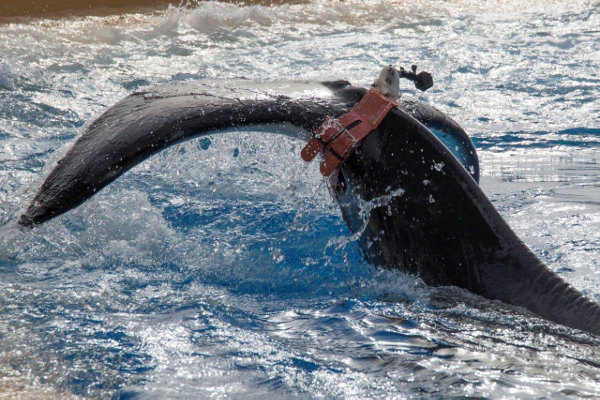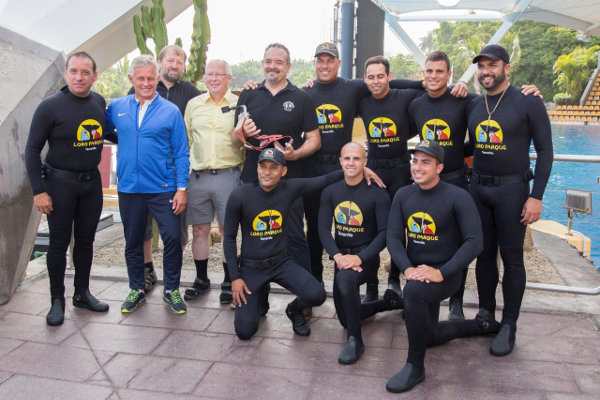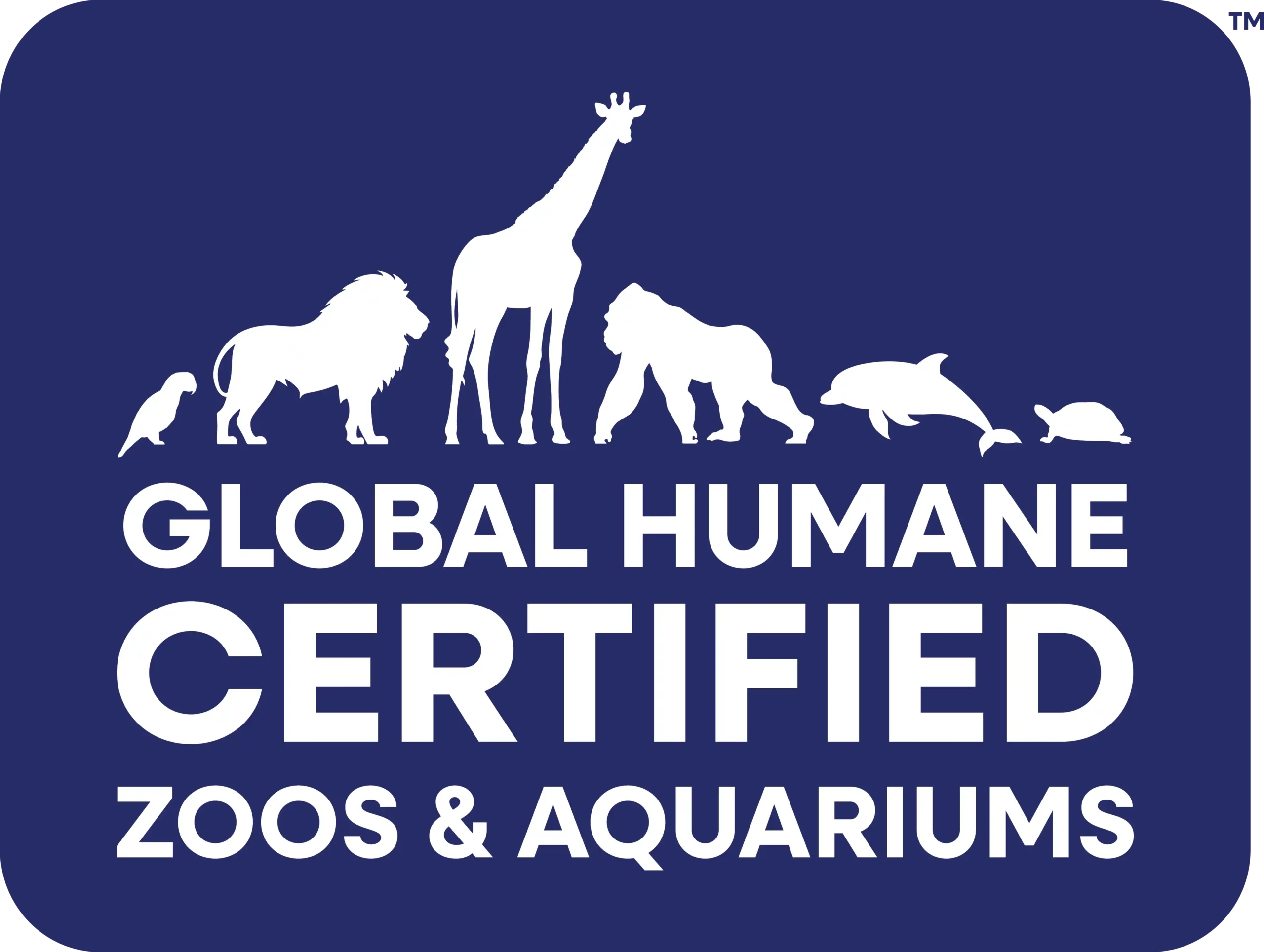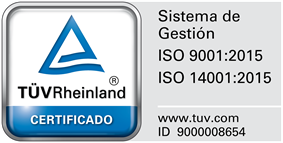Loro Parque strengthens its commitment to research by hosting the first non-invasive tagging test on cetaceans by placing an innovative belt at the end Keto’s tail.
This pioneering study, conducted today in OrcaOcean by Icelandic and Danish scientists, consists in confirming the viability of the device and verifying that it does not create any disturbance on animals’ skin. The final goal of this procedure is to mark humpback whales in the wild.
Methodically, the concept features a belt placed at the animal’s tail that includes a number of sensors to measure basic parametres. This will provide data for further studies on geolocation, feeding behaviours and vertical movements of the animal and many other aspects.
Furthermore, these innovative “tagging” will be capturing and processing unique oceanographic data. This data will then be used to evaluate certain issues related to climate change and the main objective of the effort is to set up a network of sensors using humpback whales in different locations around the world. This unique tool will allow learning more about both their biology and obtain information about the climate on a global scale.
The results of the test performed on the orca Keto have been satisfying: it has not caused any problem on animal’s skin and it has been ascertained that it does not affect the movement of the animal – the innovative material of the belt is flexible, impermeable and does not create friction.
As the success of the test in Loro Parque has been confirmed, the scientists will perform the tagging of two humpback whales in Iceland, whose collected information will be used to know more about the migration processes of these cetaceans.
Dr. Javier Almunia, Deputy Director of Loro Parque Fundación, and Rafael Sánchez, Head Trainer of OrcaOcean, viewed positively the initial viability of a non-invasive marking system in comparison to the traditional tagging, in which harpoons are used that cause discomfort and potential injuries to the animal.
Without this kind of tests, it would not be possible to determine that the design is appropriate for use. Therefore, it has been noted that Loro Parque’s orcas contribute to scientific research and to data gathering that benefit cetaceans in the wild, performing a role of ambassadors of their species in the nature.













